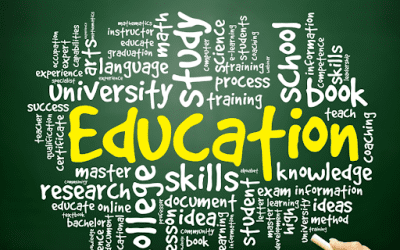Since the advent of markers and poster board, classroom learners have created projects. Most adults have bittersweet memories of book reports in the form of book covers, dioramas of specific time periods, or posters demonstrating the water cycle. These types of projects demonstrate what learners studied during a unit. But these projects weren’t the learning process itself. They were not examples of effective blended learning practice called project-based learning.
Rather than completing a project at the end of a unit, project-based learning focuses on learning while completing the project. This type of learning closely mimics what professionals in most fields do every day. For example, scientists develop a project to study the effectiveness of certain water conservation techniques. Another project is city planners designing a park that meets the needs of local children. Thus, project-based learning is perfect for preparing higher ed learners for the future.
Below are five common strategies that can be used in any higher ed blended learning environment to meet course objectives and learner outcomes.
- A successful project-based learning experience must be focused on driving question. A driving question does not have a simple answer; It is open-ended. This allows learners a chance to explore a variety of options. One strategy to find a driving question is to use a question template. Here are a few template samples to try:
-
- How might I/we solve ____ by ____?
- How can I/we improve ____ through ____?
- How can I/we increase/decrease the impact of ____?
- Another strategy is including a continuous feedback loop for each project. Before the projects begin, instructors and learners should discuss what types of feedback learners need to stay on track and be successful, and how often they need to receive feedback. Groups can decide how to document both feedback and any revisions to plans made based on the feedback. Documenting can help learners stay on track and make sure they meet the course objectives and outcomes.
- Perhaps one of the most useful strategies is requiring learners to find mentors from the community to help them. In real life, professionals rarely embark on a new job role without being assigned a trainer or a mentor. Asking learners to find a community member to mentor their project cultivates community support and helps learners build their networking skills. Learners also learn how to interact with professionals in the field. However, the instructor should provide clear guidelines on the role of the mentor. Learners should not confuse the mentor’s role with the instructor’s, nor is a mentor responsible for producing a part of the project. All produced work should be learner-derived.
- Learning how to engage in constructive conversations during project-based learning may be the most vital skill learners acquire. Strategies to teach productive conversations include laying the groundwork (respectfully listen), role-playing, and softening criticisms with phrases such as “I wonder if we did this instead of that” or “Could we try this to see what might happen?” Though it may seem like a waste of class time to ask learners to role-play to practice conversation techniques, unproductive conversations about project concerns are definitely a poor use of time.
- One strategy may be overlooked when working with higher ed learners: time management. It is often assumed that because learners in higher ed are usually adults, they must know how to manage their time. While this may be true in regards to balancing home/work with traditional studying, project-based learning requires additional skills. Instructors can teach time management strategies specific to project-based learning, such as budgeting time over a semester for various activities and adjusting a timeline as the project progresses. Knowing flexible time management skills are a boon in any field.
It’s easy to see how class projects of yesteryear differ from today’s project-based learning. Not only is the learning the focus of each project, but learners acquire lifelong skills that will increase their success in higher ed and their professional fields. Preparing learners for success is the real driving force for project-based learning.
Want to Know Some of the Potential Challenges of Blended Learning?
Download our free PDF!





